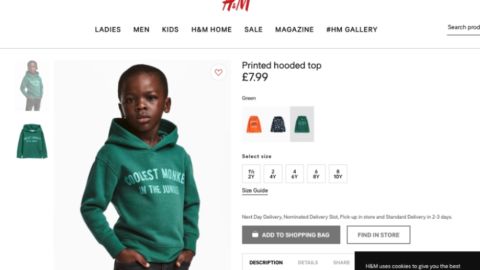If you asked a typical American what the highest-selling global online shopping day of the year is, they would likely come to either one of two conclusions: Black Friday or Cyber Monday. Believe it or not, neither answer would be correct. The accurate response would be Singles’ Day, which reeled in a total of $9.34 billion in online revenue in 2014, more than the total sales of Black Friday and Cyber Monday combined.
Singles’ Day is annually celebrated in China on November 11 (or 11/11), and is spearheaded by e-Commerce giant Alibaba. During the day, shoppers browsing Alibaba-run marketplaces Tmall and Taobao could shop for discounted items from participating retailers for a 24-hour stretch similar to Black Friday and Cyber Monday.
The shopping day reportedly was invented in 1993 when students at Nanjing University decided to pick a day where single people could buy objects for themselves, functioning primarily as a rebuttal to Valentine’s Day. Alibaba embraced the concept, adopting and popularizing it in 2009. Within five years, Singles’ Day sales shot up from a mere $7 million to the $9.34 billion reported this year.
It appears the trend has migrated in small doses to the U.S. marketplace. For example, Overstock.com had $100 deals commemorating the day, specifically marketed towards single shoppers. Dealmoon.com, an online retailer targeting Chinese-Americans, also offered Singles’ Day deals throughout its web site.
Alibaba CEO Jack Ma hopes to bring Singles’ Day shopping to global consumers by 2019, which comes as no surprise given his prior ambitions to take the company beyond Chinese borders. The major roadblock to this expansion appears to be the proposed holiday’s proximity to the December holiday season; U.S. consumers may not be ready to break the bank in November when they are gearing up for serious holiday investments in two weeks anyway. Another hindrance to Singles’ Day is the date’s association with Veterans Day, which traditionally is not a shopping day. Understandably, some shoppers might feel a combination of the days would be inappropriate.
However, the idea of a new shopping day isn’t exactly unheard of around this time of the year. In fact, the term “Cyber Monday” hadn’t even debuted until 2005, but has obviously become a phenomenon across the entire retail industry. More recently, eBay coined the term “Green Monday” to describe its best sales day in December, which usually falls on the month’s second Monday. Many online retailers have since followed suit to provide shoppers with discounts as another way to hype up the holiday season, netting a combined $1.61 billion in sales. With that in mind, the consumerist lifestyle that tends to encapsulate American audiences does appear to fit in with the Singles’ Day theme.
Presently, 63% of U.S. shoppers say they aren’t yet familiar with Alibaba, according to a survey from Connexity. If anything, this signals that there is a wider base of consumers that Ma and company can market to as part of their expansion process.
While it may take longer than the estimated five-year goal for Singles’ Day to catch on with the American public, if at all, it’s clear that there is at least a potential to try out experimental deals. Ma just has to make sure his company’s business effectively expands into the U.S. first.













